The Truth Behind THE NORTHMAN. Freakin’ Masterpiece
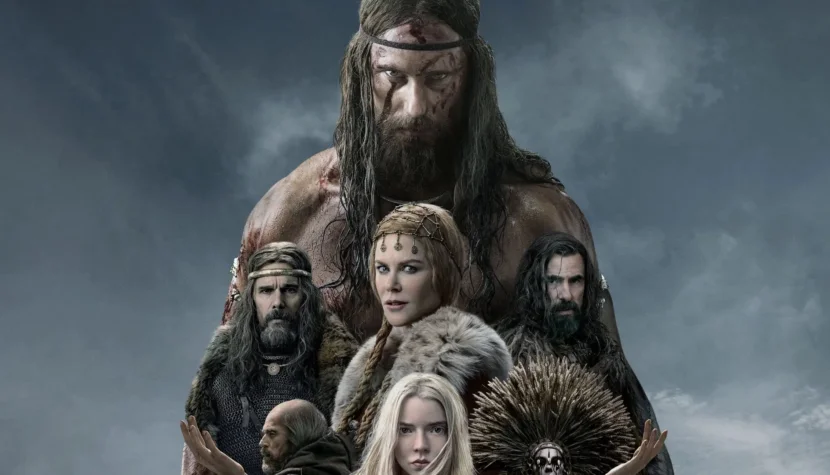
After seeing The Northman by Robert Eggers twice in theaters, I confidently call it a masterpiece, fully aware of the weight of that word. Those of you who disagree with me today will probably agree in a few years. Mark my words. In the meantime, I present my arguments for the brilliance of The Northman below, neatly organized into five points.
The Northman – Cinema in its purest form
To say that The Northman is a beautifully made film is to say nothing at all. This work was created to be experienced on the big screen, in the highest quality of sound and picture. Yes, experienced – the film engages the viewer in a truly sensory way, it’s intense, gets under your skin, sends shivers down your spine, and speeds up your heartbeat. It’s a nightmare (Eggers, even without making a horror film, remains a master of crafting dread and strangeness), but the kind of nightmare you wish would never end. Not every viewer will necessarily appreciate this effect. Most audiences prefer cinema that’s secondary to literature, meaning those based on words, storytelling, and character development with relatable protagonists. However, Eggers fully understands that cinema is, above all, an audiovisual medium that rises to the level of art when it perfectly utilizes purely cinematic tools. And in a world where we’ve already told each other every possible story, the “how” becomes more important than the “what” – meaning the form, which always carries the content.
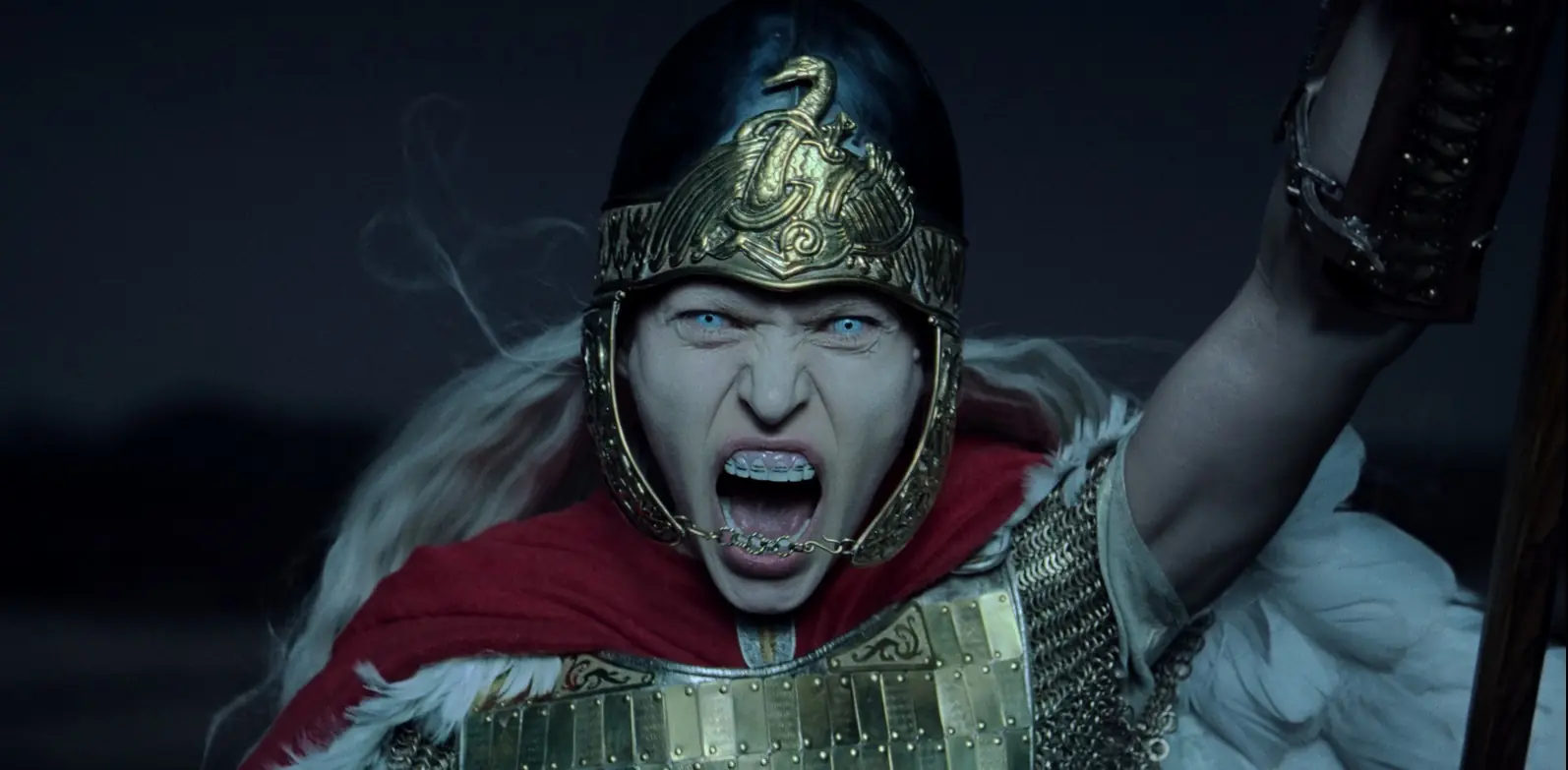
The raw beauty of the visuals, flawless storytelling through camera movement, the emotionally stimulating and nerve-wracking soundtrack, and the perfectly synchronized sound – Eggers had the support of a range of specialists. In collaboration with Jarin Blaschke (cinematographer), Robin Carolan and Sebastian Gainsborough (responsible for the perfectly integrated soundtrack), and an entire team of technicians, he has delivered an uncompromisingly artistic piece, somewhat against the grain of the blockbuster format. For this risk and courage in spending 90 million dollars on such an unconventional production, which by all probability might not break even at the box office, respect is due not only to the director but also to Universal, the studio that backed this project. Universal went entirely against prevailing trends and placed enormous trust in the creator. That’s why Eggers’ latest film makes me so happy and feels like such a breath of fresh air – big money should go to the geniuses of cinema who know how to use modern technology to its fullest. For crying out loud, how are we ever going to get another Kubrick when the biggest bucks go to the journeymen of endless franchises rather than to filmmakers with original vision and ideas? I sincerely hope that The Northman is a harbinger of change in this regard.
Artistry in defiance of major studios
Since we’re already on the topic of the distribution and production aspects of the film… One swallow doesn’t make a summer, but two might. After the artistic and commercial success of Dune, we’re seeing another spectacle that combines an auteur’s touch with a high budget. The Northman has dazzled American critics, though box office has been rather underwhelming. But with the strong critical reception of both titles, can we expect more funding for ambitious projects, the end of the monopoly of big studios, and the decline of the pathological commercialization of Hollywood that we’ve seen in recent years? Will American producers finally understand that the best way to return to their former glory is to trust outstanding individuals and their visions, just as they did in the golden age of Coppola and Scorsese?
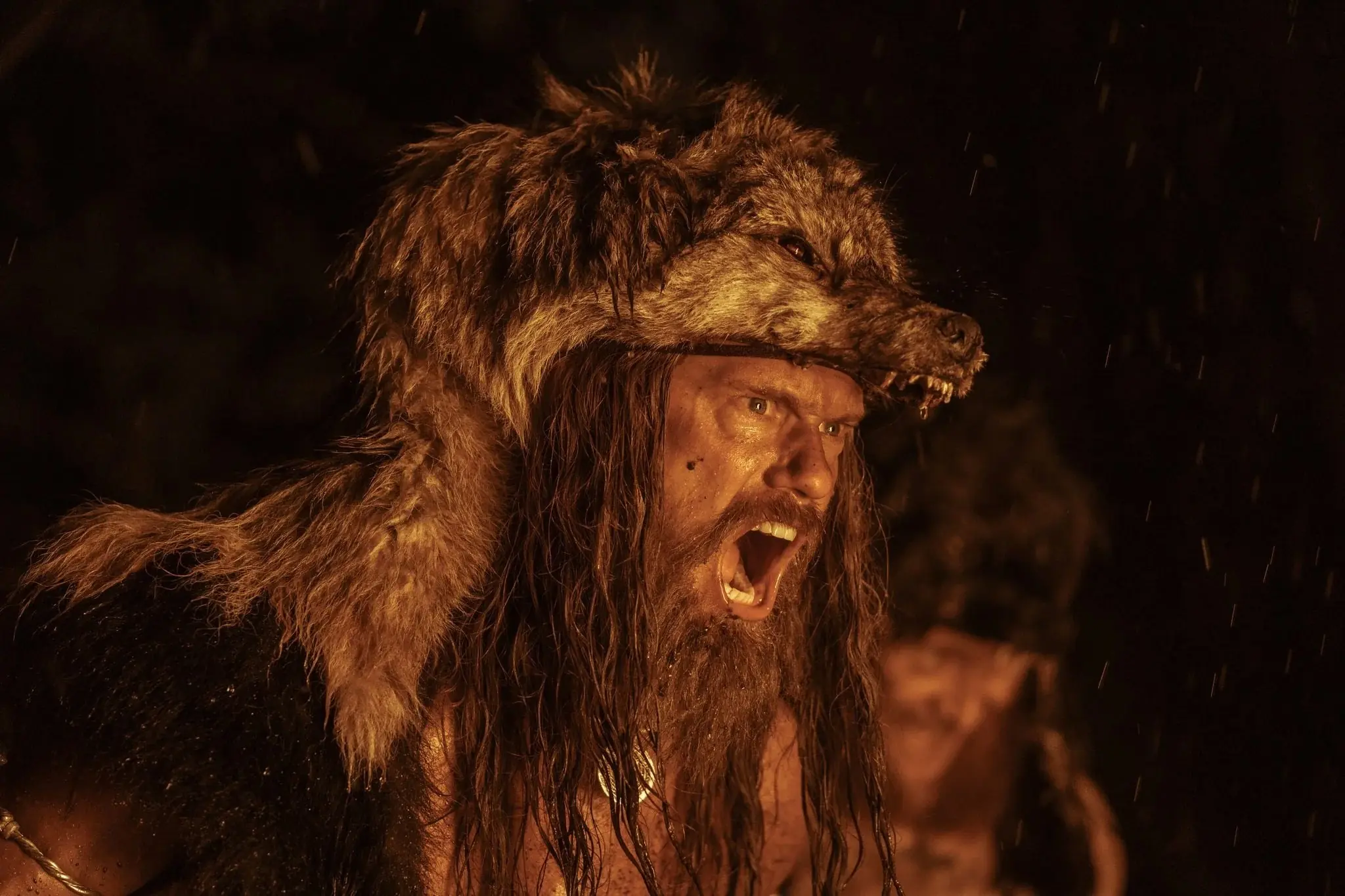
American popular cinema has been in a rut for quite some time, recycling the same stories and themes over and over. Hollywood has been duped into believing that marketers and statisticians know better than artists how to create films that captivate audiences. The brilliance of The Northman lies precisely in its ability to merge artistry with spectacle, breaking down the artificial divide between what’s considered “high-brow, niche” and “popcorn, mainstream.” It proves that there’s room for visionaries in the mainstream – more than that, it shows that without them, cinema can’t create new myths or captivate us in the long run. Eggers hasn’t lost his distinctive style here, even though The Northman is much more conventional than his previous film, The Lighthouse – which doesn’t mean it’s worse, just different. With every premiere, Eggers reveals a different facet of himself, while still maintaining his characteristic features. Some have suggested that The Northman isn’t the film Eggers initially wanted to present to the world – the original version was over three hours long and didn’t sit well with either the producers or audiences at test screenings.
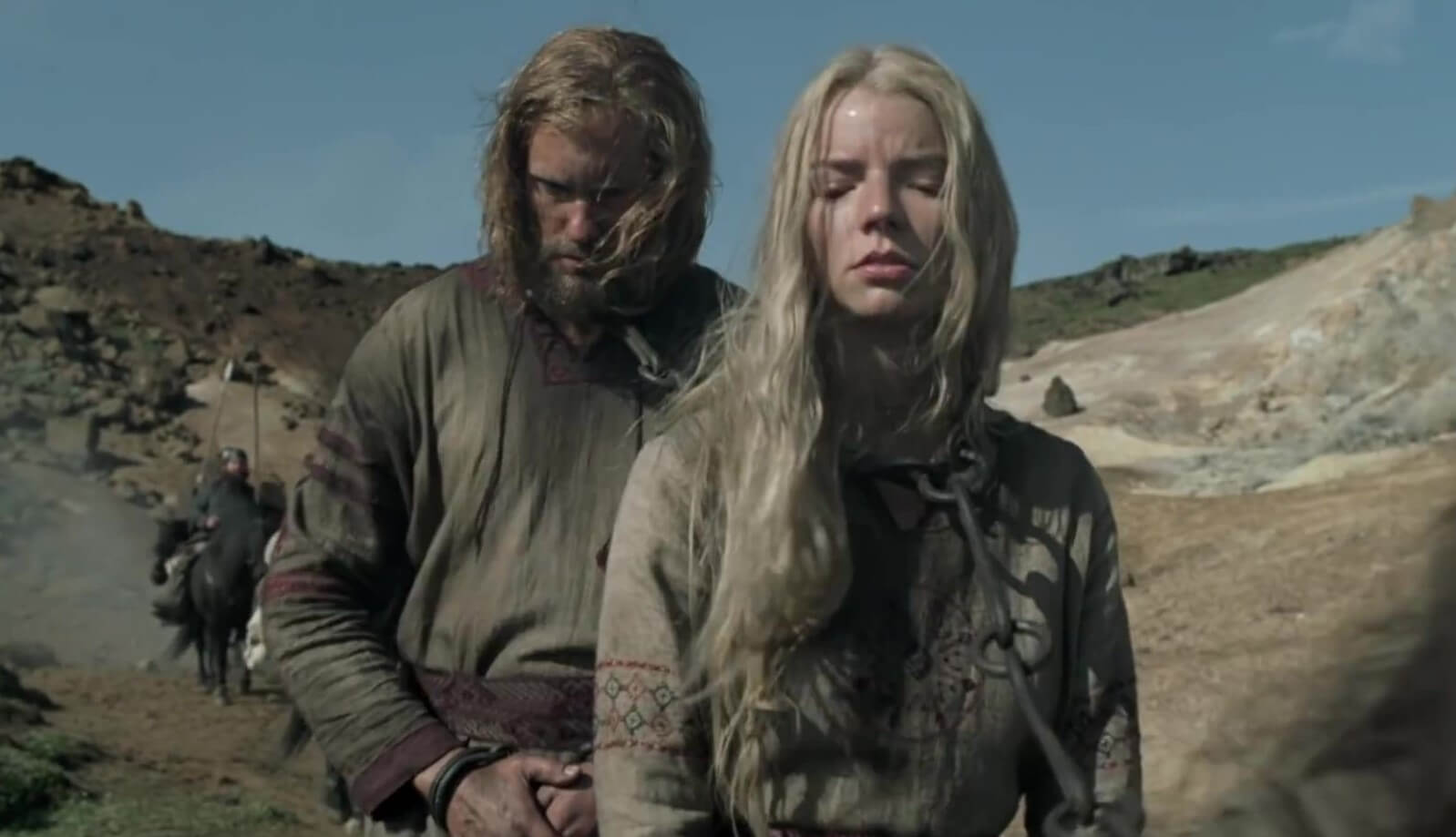
As a result, the director had to shorten and re-edit the whole thing. However, in interviews, Eggers quashes any speculation that he’s unhappy with the final product. He openly admits that storytelling isn’t his strongest suit, and he acknowledges that the criticism of the first version was justified, as it helped him condense the narrative. He talks about how this was his first big-budget production and that he approached it from the perspective of a student, not an untouchable master. He also declares that the version that debuted in cinemas is his director’s cut, and he won’t be releasing any other version: the deleted scenes will be included with the Blu-ray. Then we’ll be able to see what was cut from The Northman and imagine what an uncompromisingly Eggers-esque three-hour version might have looked like. Is the director being sincere in these interviews? I have a feeling he is – his gestures and body language radiate the satisfaction of someone who’s proud of the work they’ve accomplished. But even so, I’m eagerly awaiting those deleted scenes.
The creation of a believable alternate world
What I love most about cinema is its ability to transport me to an entirely different world. I lament the fact that historical and period films aren’t very popular these days, and that spectacular works like The Last Duel and The Green Knight don’t attract the interest of most viewers. Today’s filmmaking capabilities allow us to recreate past realities with a level of realism and immersion that was simply unattainable for earlier filmmakers. I dream of a day when historical cinema makes a comeback.
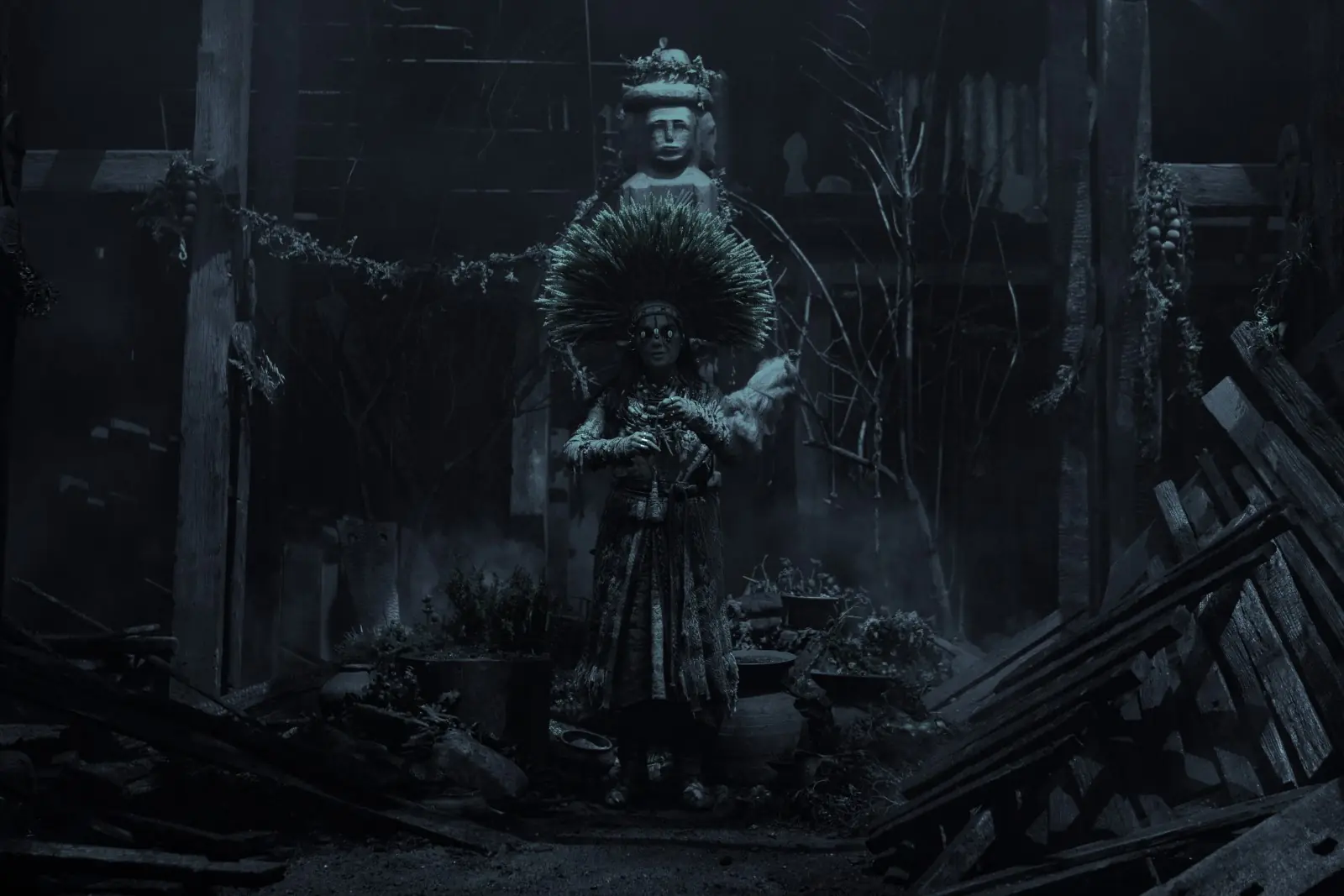
For now, I’m delighted by The Northman, which threw me into the heart of the dirt, chaos, and brutality of the early Middle Ages. It stripped the Vikings of the heroic myth created by romantics and pop culture, showing them for what they truly were: murderers, rapists, slave traders, and oppressors of medieval Europe. Eggers is a history nerd who has stated that he will never make a film about the present day because it simply doesn’t interest him. He’s also a perfectionist who conducted extensive research before shooting The Northman, consulting the best experts on Norse mythology and culture. A significant portion of the hefty budget went toward crafting weapons, costumes, boats, faithful reconstructions of temples, and even such details as traditionally made ribbons for braiding hair – details so subtle on screen that no one would have noticed the difference if they had been bought at a craft store. It’s also worth noting that a Polish company was involved in creating the meticulous set design.
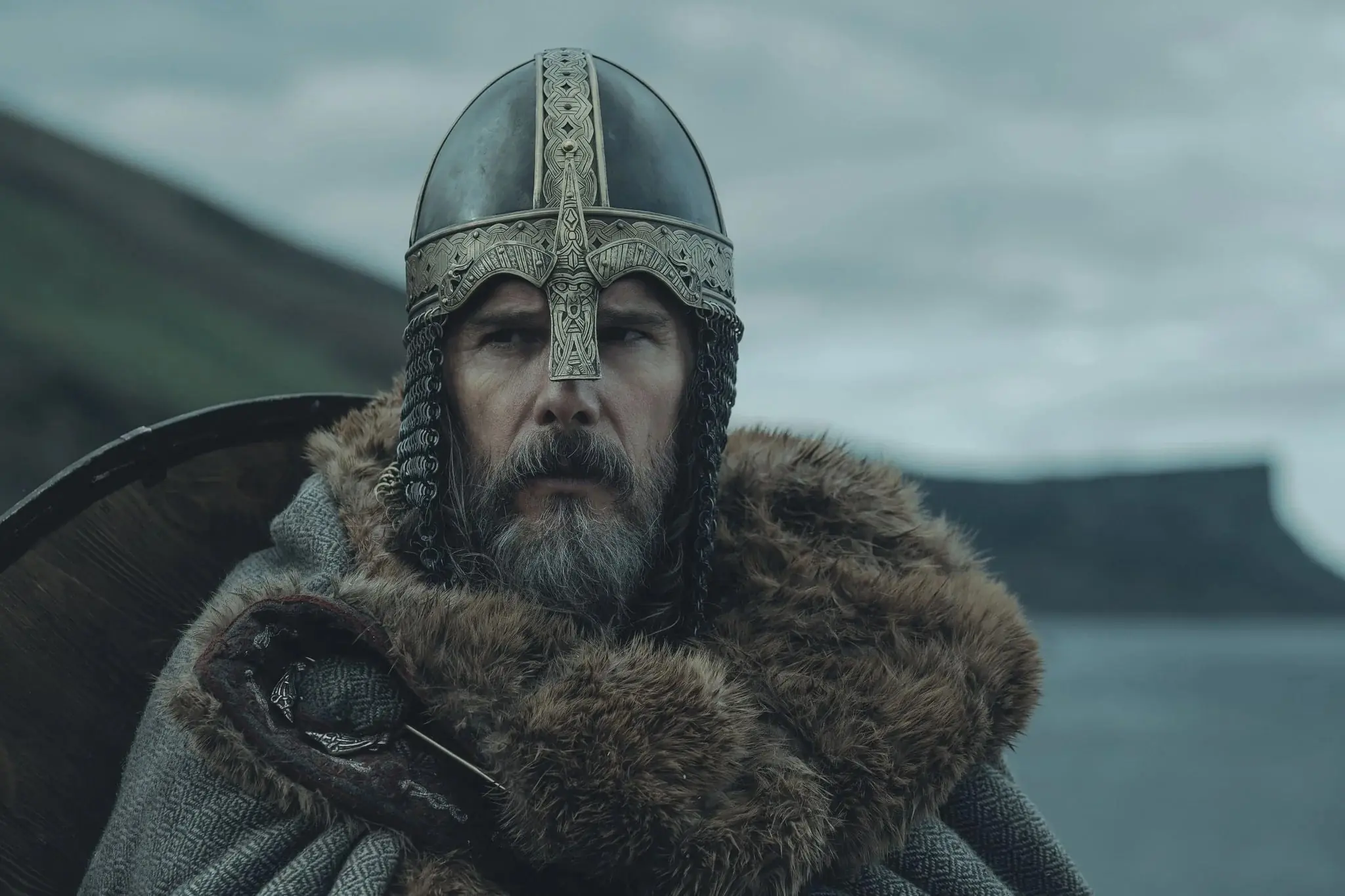
And what’s the result of all this effort? Total immersion. According to experts, this is the most historically accurate film about the Norsemen ever made. The world it portrays seems to have been transported directly from the 10th century. But Eggers’ film stays true to history on a deeper level than just visual accuracy. He didn’t try to impose modern motivations on his characters, to develop them psychologically, or to judge them by today’s moral standards, making them more accessible to the average viewer. The Northman plunges us mercilessly into a world inhabited by animals in human skins, driven by the most primitive instincts and the law of the strongest; a world of ruthless exploitation of the weak and the sadism of the powerful. This isn’t just another film that romanticizes the past or portrays war as something heroic. It’s not another fantasy about how men supposedly used to be more masculine and noble, or how women loved to sit quietly at home and spin wool. It’s a hellish world where only a complete psychopath would feel at home. As I mentioned, Eggers strips the Vikings of all their glamour. The breathtaking, single-take (!) scene of the massacre of a Slavic village is the best example of this. Amleth doesn’t appear as a proud warrior but rather as a mere murderer, prowling through the settlement, vigilant and ruthless like a hawk, looking for any armed men that still need to be neutralized. The effect of confronting such alienness and savagery is overwhelming. And the fact that I watched this film and am writing this text during the ongoing war in Ukraine, with a lingering anxiety about the future and an awareness of how little it takes to awaken such primitive impulses and brutal aggression in people, made my experience of The Northman all the more shocking and significant.
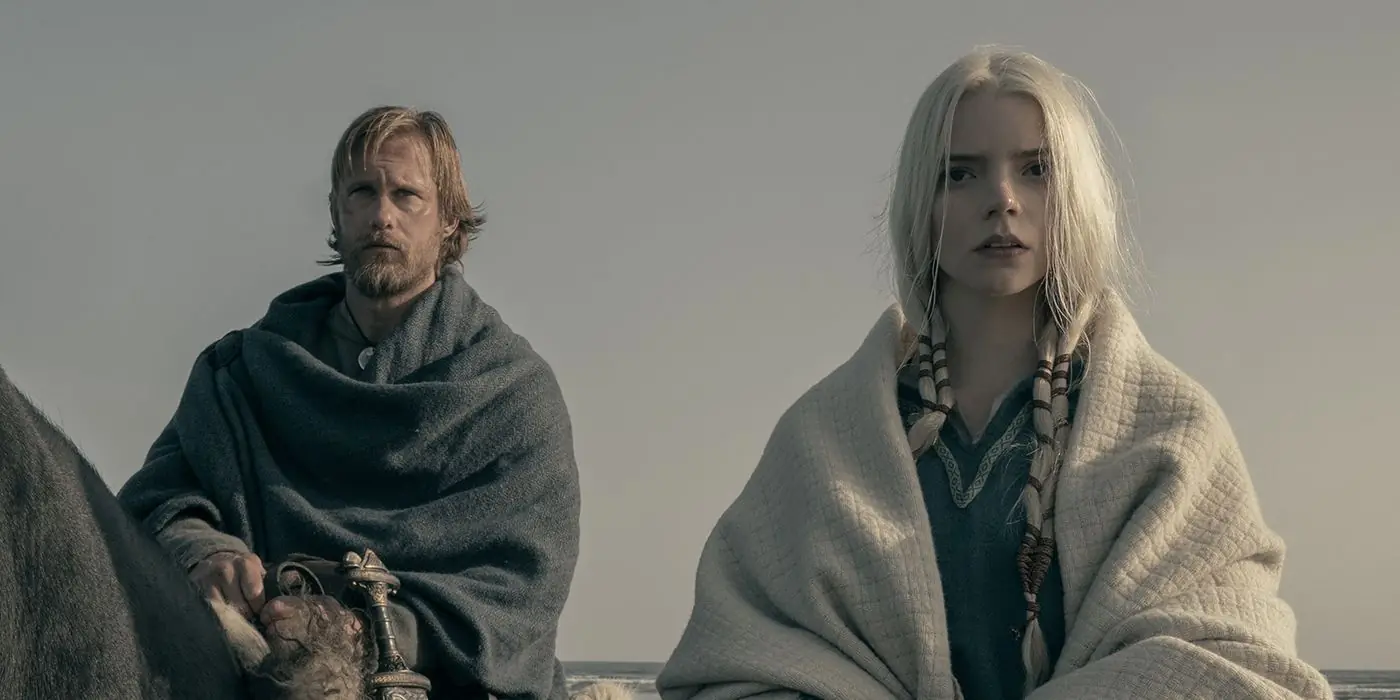
The brutality, rawness, and primal nature are not the only factors that make this feel like a work transported from a completely different era. The Northman isn’t a purely realistic film; it’s infused with fantastical elements, mysticism, and unsettling scenes of rituals, prayers, and funerals. It portrays a reality where spirituality and religion were as real to people as the material world. Death is not a taboo topic, hidden behind hospital doors as it is today – dying is so commonplace that it doesn’t faze anyone. People accept throat-slitting with shocking indifference, and killing a random boy or burning children and the elderly in a barn (because they’re unsuitable as slaves) is great fun for the Vikings. Death is just another stage, and life holds no inherent value. The belief that every person has a destiny they cannot escape is deeply ingrained in the characters’ mentalities. They believe that a person’s fate is determined before their birth and that we have no influence over it. This idea aligns with the ancient concept of fate and the beliefs of pagan peoples, but to a modern audience raised in a secular, individualistic society, it feels utterly incomprehensible and foreign.
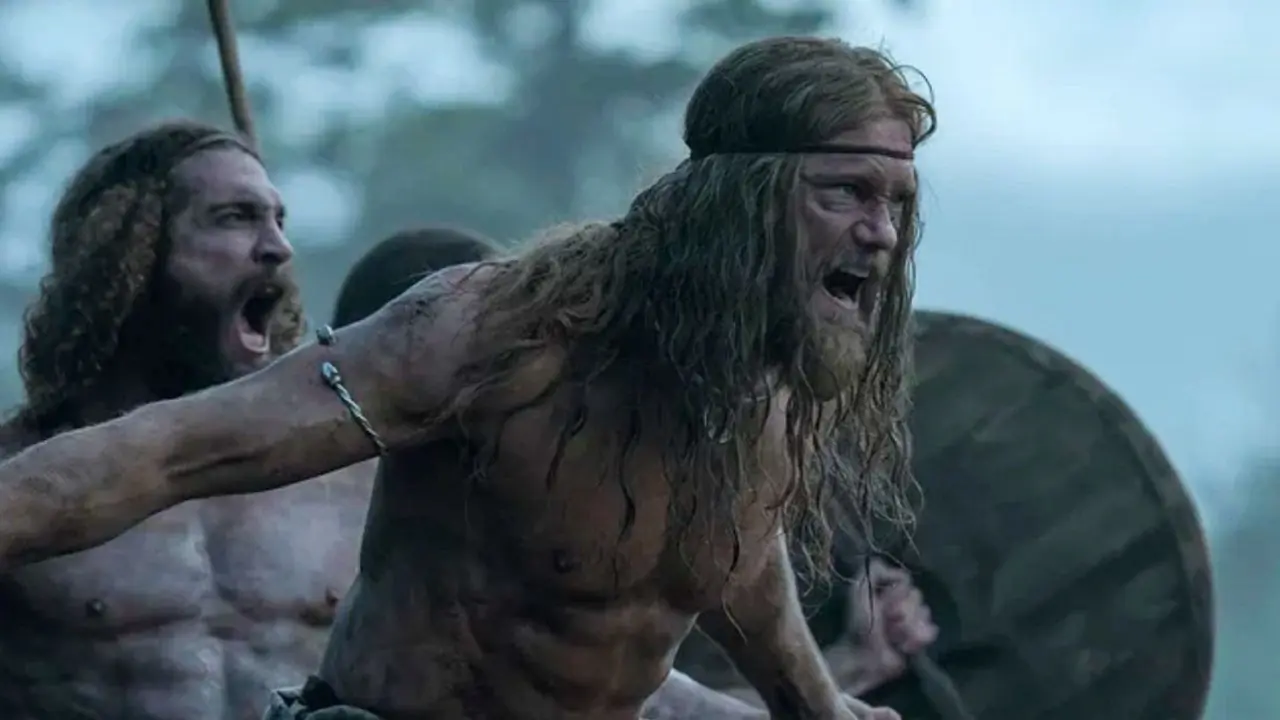
The film transports us to another world so effectively, thanks in part to the dialogues written by Eggers and the Icelandic poet Sjón (known for writing lyrics for Björk and the screenplay for Lamb by A24). The poetic language, fitting so well with the archaic atmosphere of the story, is the stylistic finishing touch for me and the perfect culmination of The Northman. The film is, after all, an adaptation of a medieval tale about the Danish prince Amleth, which directly inspired Shakespeare’s Hamlet, and The Northman feels like bringing such a forgotten legend to life on screen (in some ways reminiscent of Beowulf from 2007). In contrast to the widespread culture of deconstruction, postmodern irony, and parody of classical motifs, Eggers digs deep into the roots and presents an archetypal myth of family revenge in a form that’s as close to its original essence as possible. As a result, The Northman becomes an almost spiritual experience, a journey to the dawn of time, to primal instincts and simple motivations; a mystical encounter with the other and with forgotten, unwanted corners of human nature.
Alexander Skarsgård and the rest
All the creators’ intentions and efforts would certainly have fallen flat if not for the actors, who gave the entire story its physicality and tangibility. Initially, I had concerns about the overrepresentation of stars in the cast and whether it might detract from the film’s authenticity. Fortunately, Eggers managed to draw the very best from his actors. Both of the main female roles, played by Nicole Kidman and Anya Taylor-Joy, are outstanding and unexpected. Equally impressive – as expected – are the brief appearances by Willem Dafoe, Ethan Hawke, and Björk. The supporting characters look perfectly in line with the era’s physiognomy. I also appreciate the involvement of the parents from The Witch (Kate Dickie and Ralph Ineson) in minor roles. However, the biggest surprise and standout of The Northman for me is Claes Bang as Fjölnir – a villain who, upon closer inspection, doesn’t turn out to be much darker than his surroundings and even commands a certain involuntary respect. The Danish actor, best known for his lead role in The Square and Netflix’s Dracula, was cast somewhat against his usual type and body of work, proving how versatile an actor he truly is.
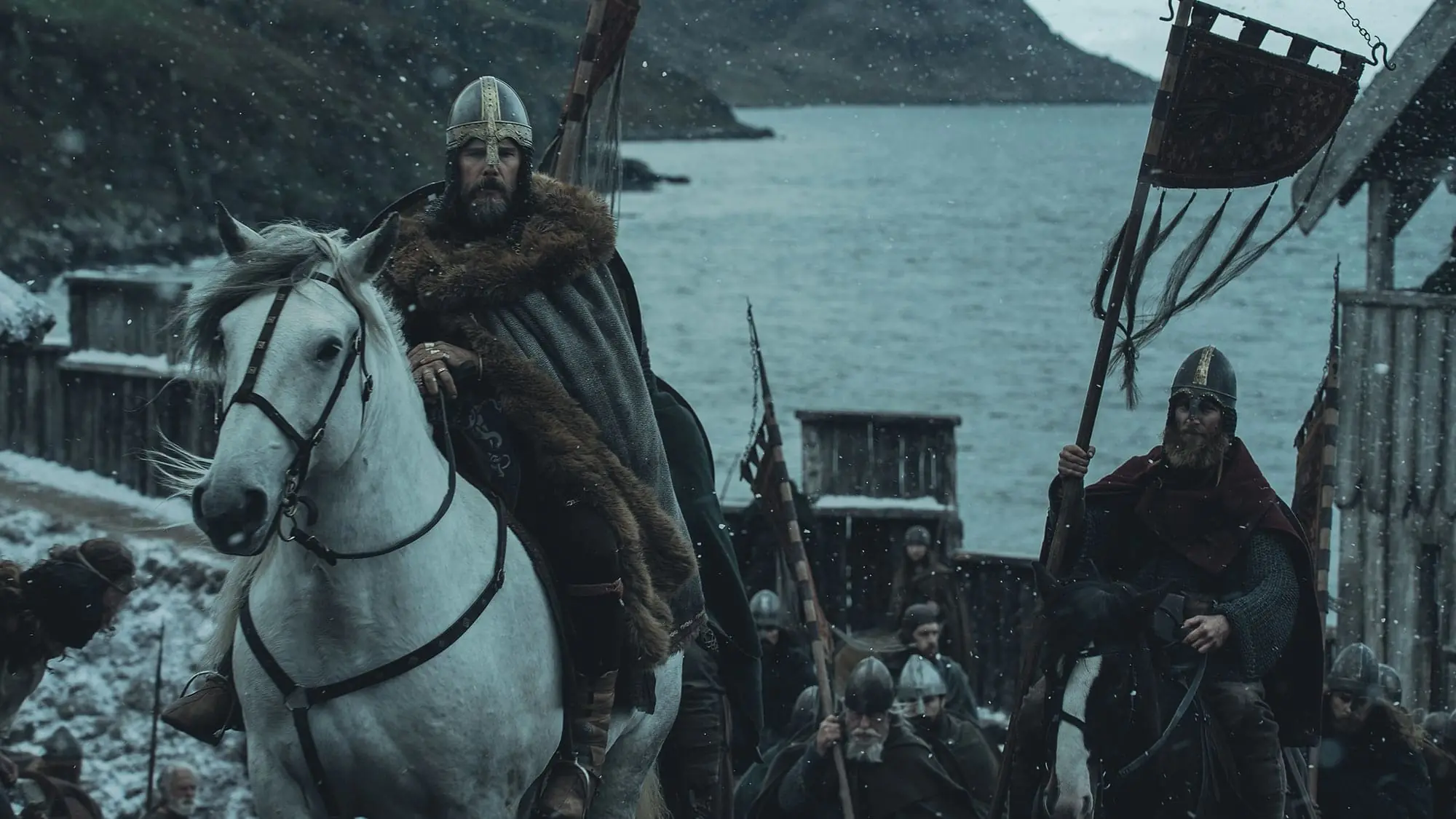
And, of course, there’s Alexander Skarsgård in the leading role, delivering perhaps the best performance of his career. As a man-beast, a creature in human skin, the embodiment of the id, and the personification of vengeance, hunched, crouched, alert, wild, and furious… he’s both terrifying and impressive, completely unlike the elegant, handsome Swede we know. Only in some scenes, through his wide-open blue eyes, can you catch a glimpse of the little boy hiding beneath the berserker’s mighty muscles, fleeing from trauma, loneliness, and pain. He did not receive an Oscar nomination since the Academy rarely appreciates such physical, body-centric performances. Well, that’s just one of the many reasons why we, the viewers, are becoming increasingly indifferent to that particular awards ceremony.
What stays in your mind and lingers after the screening
The main criticism leveled at The Northman by its detractors is the simplicity of its story and the lack of material for deeper interpretations. I couldn’t disagree more. The longer I think about this film, the more I discover within it. After the first viewing, which I experienced more on an emotional level, came a second viewing, during which I analyzed and interpreted it more deeply. The Northman only seems to be a simple, archetypal tale of revenge (which, in itself, isn’t a flaw, as I’ve mentioned before: this simplicity makes it feel like an ancient legend rather than a contemporary cultural work). Its complexity lies in the nuances, symbols, and details that enrich and diversify the narrative.
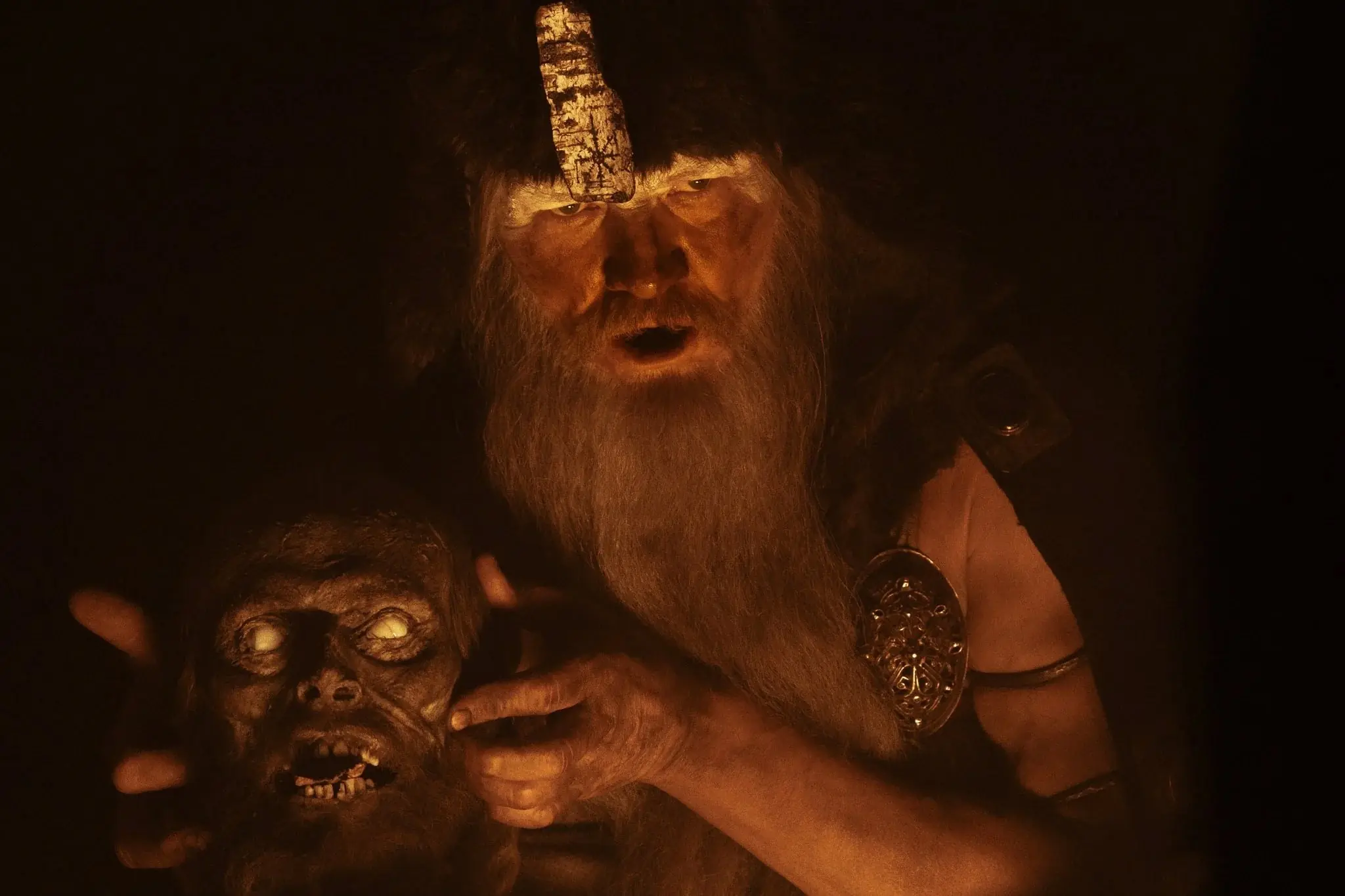
Warning: the following part of the text may contain spoilers.
Firstly, The Northman is a paradise for those who love to hunt for cinematic, cultural, and literary references, showcasing the creator’s impressive erudition. I’ve already mentioned the film’s historical accuracy and its rich mythological layers. A cinephile’s eye will catch numerous film inspirations and direct references to scenes from cinema history (from Conan the Barbarian and Revenge of the Sith, through Throne of Blood and Titus Andronicus, to Come and See and The Deluge). These aren’t empty or flashy nods; all the referenced titles tackle themes similar to those in The Northman. Amleth’s fate echoes that of Orestes, and the entire film is steeped in the spirit of Greek tragedy, the atmosphere of Norse Edda, and the style of an early medieval, pre-Christian legend. Yet, the pathos, theatricality, and grandeur of the spectacle are skillfully neutralized by the film’s self-awareness and subtle elements that break the decorum, such as when Amleth, after defeating the Mound Dweller (in a battle straight out of The Elder Scrolls), angrily hits him in the rear with his severed head. Few reviewers notice The Northman’s genre-blending, even though this chapter-divided film changes its tone in every episode. From a prologue that’s closest to a conventional historical drama, through a grim spectacle of brutality set in Rus’ (the part closest in tone to the “Viking movie” most viewers expected), to the claustrophobic horror that presents events not from the perspective of those being tormented by a “demon” (Fjölnir’s household) but from that of the haunting entity (Amleth).
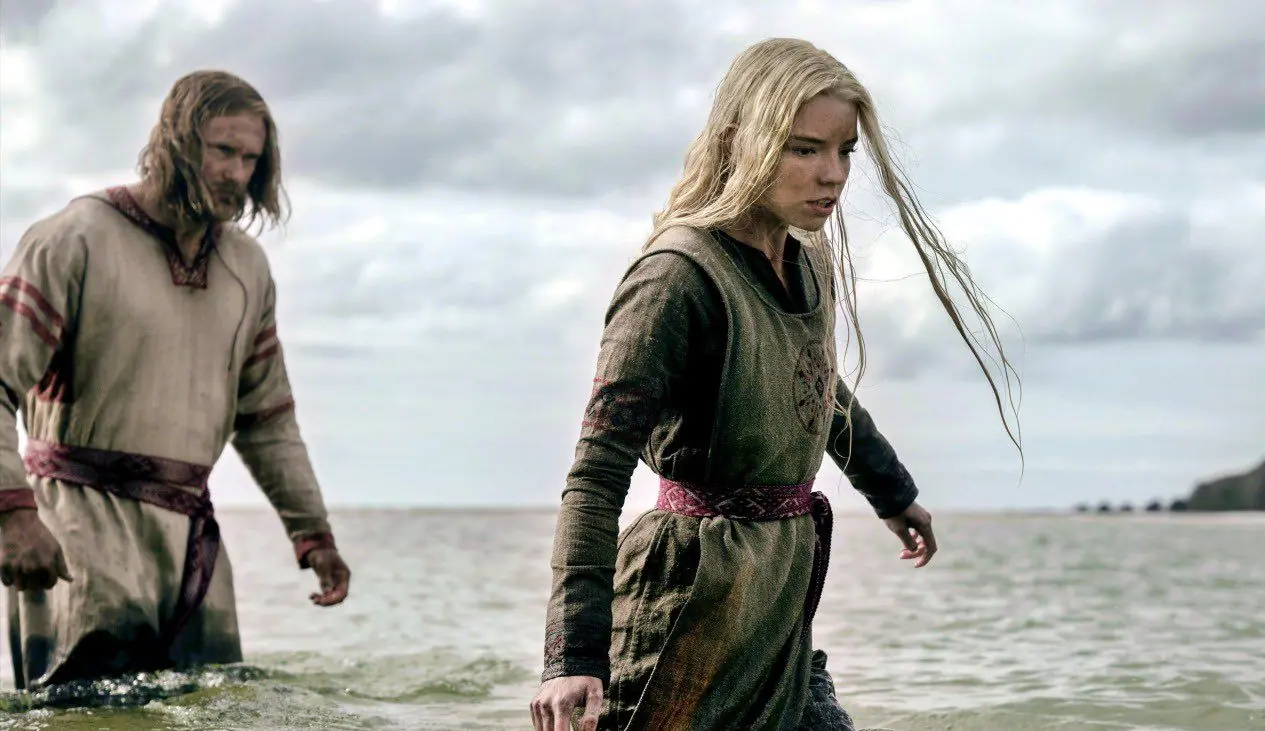
Secondly, The Northman’s plot only appears to be banal. We watch the events from Amleth’s perspective, so the story is filtered through his consciousness – straightforward, wounded, and unrefined. However, once we realize that The Northman is narrated by an unreliable narrator and we take a step back, the whole narrative gains depth. Amleth, acting in what he believes is the name of justice, ends up causing more suffering than was inflicted by the death of his father, which he’s avenging. He is the main character but certainly not a positive one – more morally ambiguous, like everything else in The Northman. He might even be schizophrenic, which would explain all his visions. Perhaps Olga doesn’t really love him but merely uses him: after all, she openly says she’ll do whatever it takes to escape from Iceland, and her “cunning bends men’s minds.” Does Amleth’s myth of a noble, treacherously murdered father hold up in reality? How should we judge Queen Gudrun’s morality? Is she a monstrous mother and ruthless schemer or a deeply wronged woman who couldn’t love a child conceived through rape?
Thirdly, The Northman conveys its message indirectly, on the level of suggestion, allowing viewers to draw their conclusions – just the way I like it. To me, this film is a critique of aggression and brute strength disguised in a genre that usually glorifies such traits. It’s a story about how we seek justification for satisfying our most primal urges through higher ideals, religion, and belief in destiny. It’s about how, when our perceptions of reality turn out to be false, we usually reject the truth and persist in our lies, like Amleth refusing to accept his mother’s words about his father. It’s also a film about how one cannot reclaim a shattered past, even if one were to kill everyone who ever caused them harm. It’s the story of a wounded boy who, after being exiled, was taken in by a group of berserkers and thrown into a world of unimaginable cruelty, transforming his sorrow into aggression and clinging to an obsessive desire for revenge like a drowning man grabbing a razor. “I have lived a life of death. Only after fulfilling my vengeance will I know if I wish to live at all,” Amleth says at one point, and we can only reflect on how many other children have been similarly scarred by our cruel history, turned into living corpses or bloodthirsty beasts.
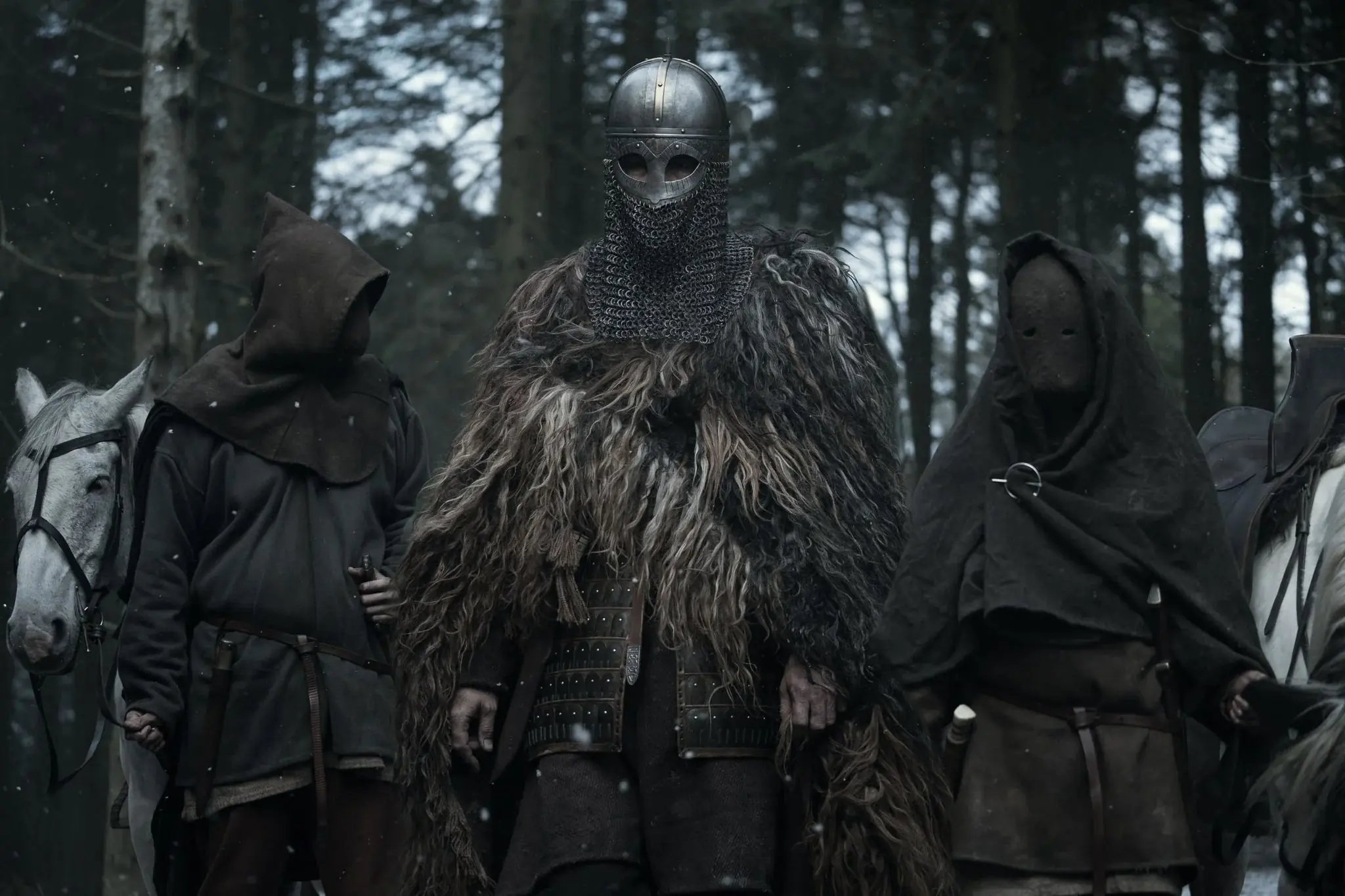
Yet, when Olga offers him an escape from all this violence, a chance to break the cursed cycle of evil begetting evil, Amleth isn’t ready. The lakeside conversation between the two lovers is, for me, a key scene in the film. It distinctly stands out from the rest, which initially felt jarring and even seemed kitschy. For the first and only time, Amleth behaves like a contemporary man: he opens up to Olga, speaks about his feelings and emotions for her, drops the mask of a strong warrior, and talks about his deep suffering. The girl encourages him to escape, abandon his vendetta, live in the present, and take care of her and their unborn children. In other words: to reconcile with his past and choose personal happiness over fulfilling a bloody duty. For a moment, it seems that Amleth might listen to her, and the film could end in a way that deconstructs the original legend while also being unhistorical and, in an American sense, saccharine. However, Amleth leaves Olga and chooses revenge. Pride, honor, and anger win over gentleness, understanding, and love. Because The Northman is a story set over a thousand years ago, where such feminine values could not yet break through the masculine ones. Where a man’s only worth was his strength, and fleeing from a pointless fight was seen not as wisdom but as cowardice. The ending is fatalistic. Amleth goes for his revenge not with strong emotions or satisfaction but with a sad acceptance of fulfilling his destiny. Perhaps he regrets his choice when, wounded, he gazes in horror at the bodies of Gudrun and Gunnar, whom he killed, awaiting Fjölnir’s arrival. When, before the final duel at the gates of Hel, he strikes his sword against his shield, reciting praise for revenge in Old Norse, he seems simply insane. The fight between Amleth and Fjölnir, in which they kill each other while roaring like two wild animals, feels like a mockery of both men, driven by self-destructive hatred. But this is just one of many interpretations – the film is devoid of clear judgments. We might just as well see Amleth’s ultimate choice as siding with love: he must kill Fjölnir so that his beloved and their children can live, for his enemy would otherwise never leave them in peace.
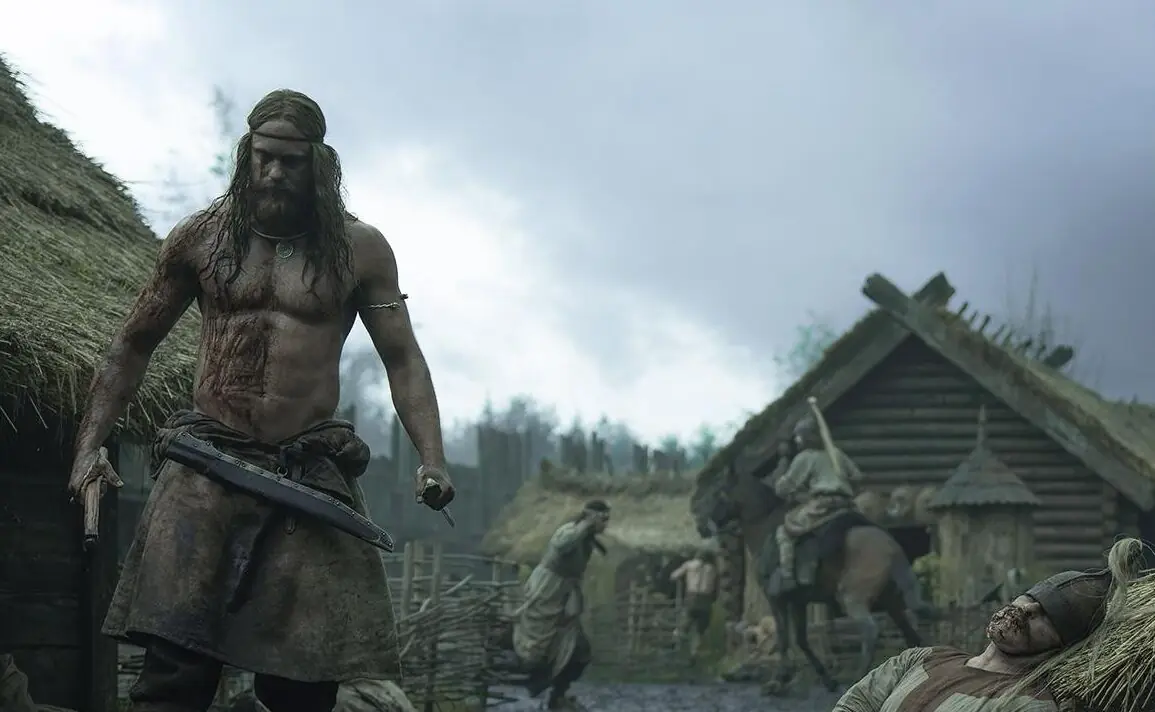
Lastly, if those who say that cinema isn’t made by films but by perfectly directed scenes are correct, then The Northman offers plenty. From hallucinatory-mystical rituals and prophecies to realistic, understated battle sequences filmed in long takes and the poetic use of natural light, Eggers has given me images that will stay with me and nourish my imagination for a long time to come.

